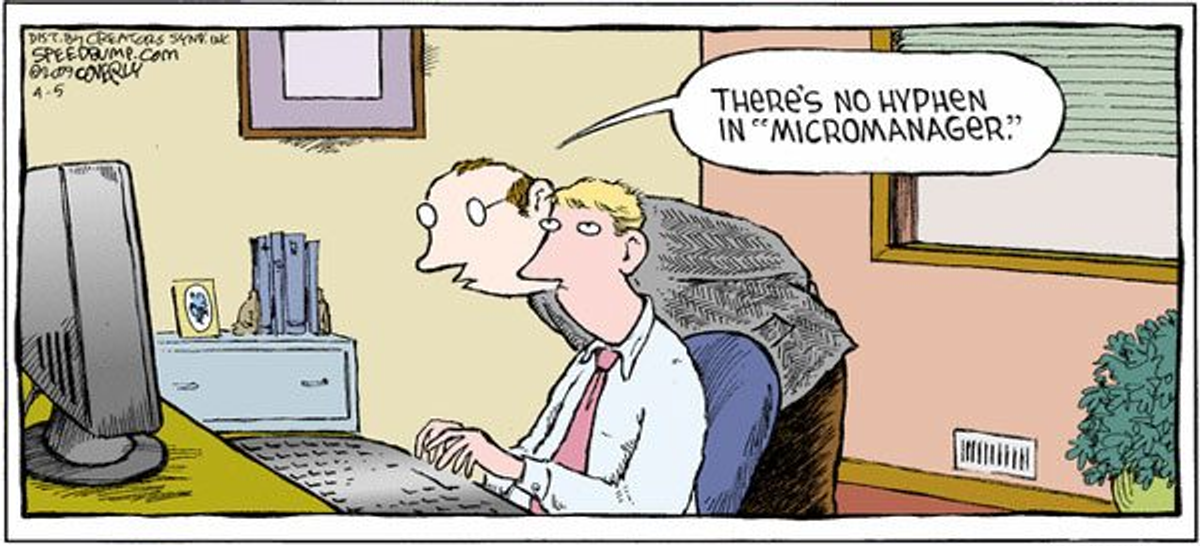Feeling Micromanaged?

It's frustrating to feel capable and yet constantly checked on. Many leaders and managers feel perplexed when they perceive themselves as high performers but face what feels like micromanagement, hindering their sense of autonomy and potentially their career progression. While it's easy to feel slighted, this article urges a moment of crucial self-reflection before addressing the issue.
Key Points & Advice:
The Reliability Factor: Sometimes, perceived micromanagement stems from an unconscious habit related to reliability. Ask yourself honestly:
Are you consistently doing what you say you'll do, when you say you'll do it? Reliability is the currency of trust.
What's your role in this dynamic? Is there a pattern of multiple people checking up on you?
Do you find yourself frequently making excuses for missed commitments?
This isn't about blame but about identifying potential blind spots that might be contributing to the situation.
Demonstrate Reliability (It's Within Your Control):
Capture Commitments: Don't rely on memory. Write down tasks or add them to a to-do list immediately when delegated. This visually signals commitment and care.
Set Realistic Deadlines: Don't agree to timelines you know are unachievable. Renegotiate upfront rather than setting yourself up to fail and erode trust.
Check Your Story & Emotions:
Frustration often comes from the story you tell yourself (e.g., "They don't trust me," "They're controlling").
Challenge this narrative before confronting the person. Ask: "Why would a reasonable, rational, decent person act this way?" Considering other possibilities (their stress, high stakes of the project) helps calm emotions and leads to a more productive conversation.
Initiate a Constructive Conversation:
Once calmer and having reflected, address the pattern directly but neutrally.
Example Script: "Hi [Name], I've noticed with the last few assignments, you check in almost daily, even with an agreed deadline. I'm committed to meeting our deadlines, but honestly, the frequent check-ins make me wonder if you're concerned, I won't finish on time. Can you help me understand your perspective?"
Understand the Assigner's Perspective (Check-ups vs. Checkbacks):
Frequent follow-ups might be driven by the assigner's own stress or the high stakes of the task.
Check-ups: Initiated by the assigner for crucial/new tasks when they feel anxious. They schedule the follow-up (e.g., "Let's meet Wednesday to review").
Checkbacks: Used for routine tasks with reliable people. The assignee (you) suggests the follow-up (e.g., "How about we touch base next Thursday?").
- Recognizing this difference can help you understand their behaviour and negotiate appropriate follow-up methods moving forward, balancing their need for assurance with your need for autonomy.
In short: While feeling micromanaged is genuinely frustrating, take a hard look at your own reliability habits first. Then, manage your emotional response by challenging your assumptions, and finally, address the pattern directly and constructively, seeking to understand their perspective while clearly stating the impact on you.
Summarised from Justin Hale: ”What to Do When You Think You’re Being Micromanaged” in His Crucial learning Blog, April 2025

